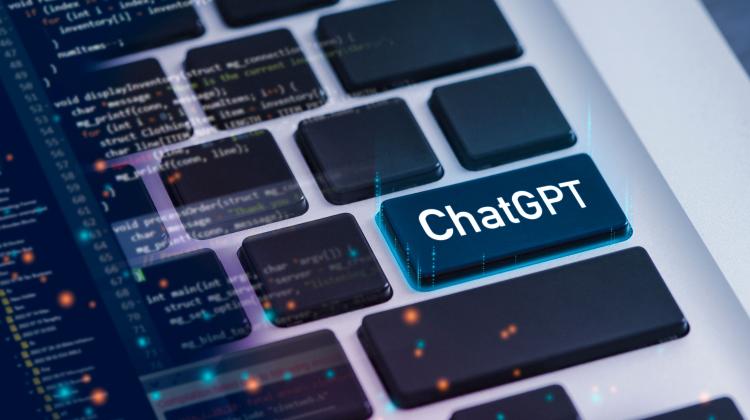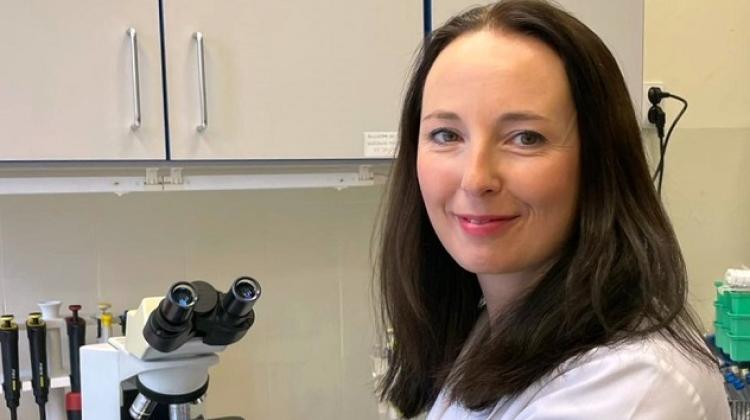ChatGPT supports researchers in writing scientific papers, says expert
 Credit: Adobe Stock
Credit: Adobe Stock
ChatGPT can successfully inspire scientists when composing articles. It also offers conceptual and language support, Marcin Wilkowski from the Digital Competence Centre of the University of Warsaw told PAP.
ChatGPT was developed by the American company OpenAI. It generates answers to questions and commands entered by users, and can perform more complex tasks, such as writing a story. The latest version of the tool was launched in November 2022 and has gained widespread attention for its capabilities, quickly becoming popular among internet users with several million people using it within the first few days of launch.
Wilkowski said: “ChatGPT can be successfully used as support when writing literary or scientific texts. It can create an outline, a draft, propose a list of topics that should be addressed.”
He pointed out that compared to other chatbots, i.e. programs that conduct conversations with users, for example ones used by online store websites, ChatGPT creates statements on a very wide range of topics. At the same time, it includes many details that enrich the text.
The latest version of the application was trained on texts created by humans - books, Wikipedia pages, Internet resources and conversations between real people.
Wilkowski said: “ChatGPT seemingly works in a creative way, it is certainly very flexible. For example, it can be tasked to translate, write a text in a specific style, write a poem or a song, but also a code in a selected programming language.
“ChatGPT can not only inspire authors of scientific texts, but even create an abstract of a paper.”
He mentioned the results of an experiment carried out by scientists from Northwestern University in Chicago (USA), published in the bioRxiv repository. For the purposes of the study, ChatGPT generated abstracts of scientific publications. It turned out that in every third case, the respondents could not distinguish the text prepared by the tool from the one written by a human. Experimental scientific papers are also published, which directly inform about the use of ChatGPT in the construction and proofreading of the text.
ChatGPT is available for free. To use it, users just log in and start asking questions and commands. The use of programming languages, which is necessary for many natural language models, is not needed to create texts.
Wilkowski said: “Some researchers are already experimenting with it and will probably permanently add it to their toolkits that include translators, search engines for scientific texts and programs that manage footnotes.”
However, ChatGPT is not all-knowing. For example, it has limited information about phenomena and events after 2021. It can also produce logical and grammatically correct answers, which, however, turn out to contain incorrect details such as dates, names or book titles.
Wilkowski said: “Despite many barriers, it can develop the concept of a scientific paper, its structure or abstract, and even proofread and edit an article in a foreign language.”
According to the expert, the modern scientific system requires researchers to publish constantly, because their work is assessed and research funding is provided on this basis. ChatGPT can help them in this task, but not always in an ethical manner.
Wilkowski said: “Some scientists publish in so-called predatory journals, which are scientific only in name. The papers they publish are not reviewed. As a result, the use of ChatuGPT to quickly prepare texts, sometimes even from scratch, may ultimately have negative consequences for science.”
He added that some scientific organizations and editorial offices of magazines already inform about not approving papers written using ChatGPT. According to other experts, ChatGPT will soon be the most cited author of all time.
PAP - Science in Poland, Szymon Zdziebłowski
szz/ joz/ kap/
tr. RL
Przed dodaniem komentarza prosimy o zapoznanie z Regulaminem forum serwisu Nauka w Polsce.


















